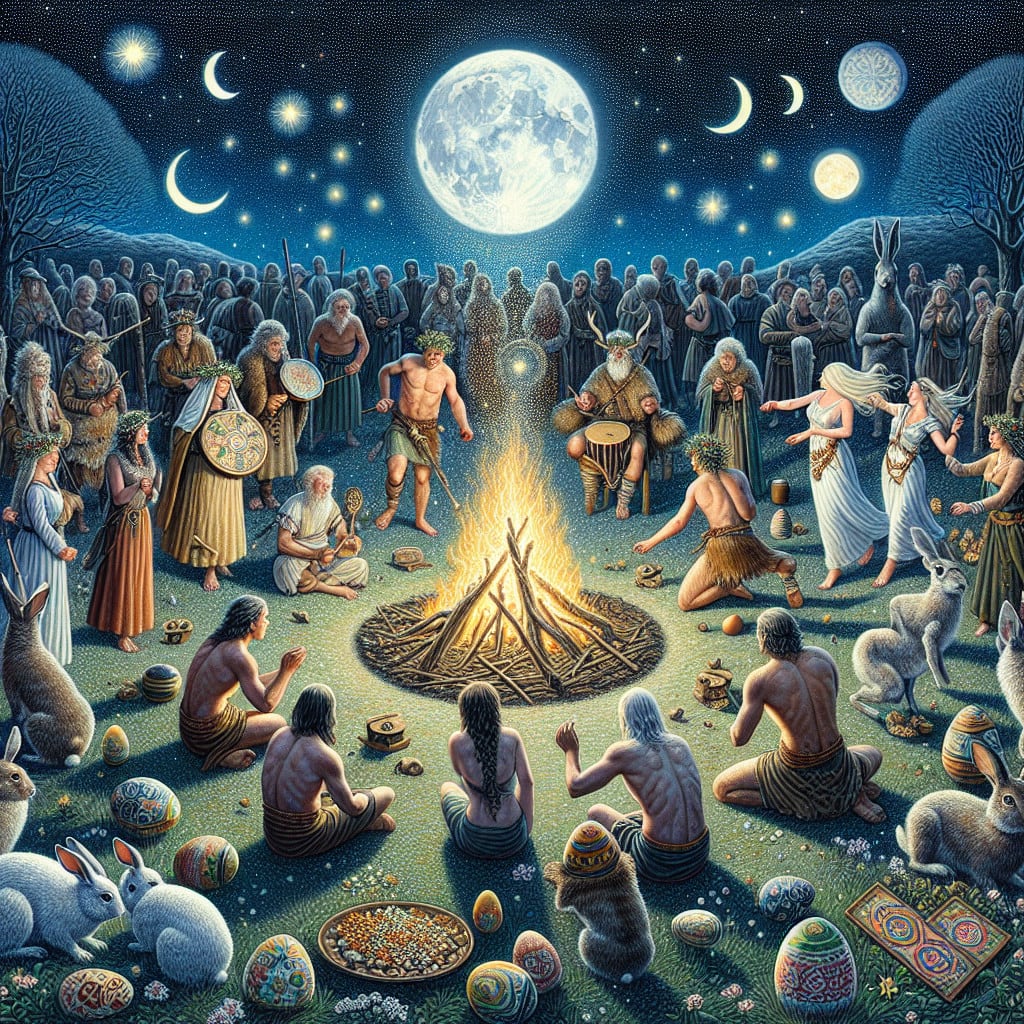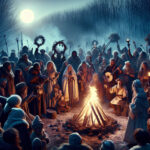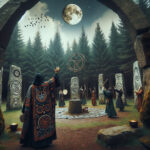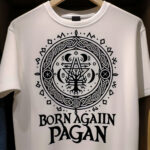Easter is one of the most widely celebrated holidays across the world. Millions of people, regardless of faith, come together to celebrate the holiday with friends and family. Despite its modern associations with Christianity, the roots of Easter actually have more to do with pagan traditions. This article will explore the pagan origins of Easter, as well as discuss how it evolved over the centuries to become the observance it is today.
Easter is an important Christian holiday celebrated to commemorate the resurrection of Jesus Christ. But did you know that Easter has its roots in paganism and pre-Christian traditions? In this article, we will explore the pagan origins of Easter and how it has evolved over the centuries.
What Is Easter?
Easter is the most important Christian holiday, celebrating the resurrection of Jesus from the dead, which is recorded in the New Testament of the Bible. It is typically celebrated on the first Sunday after the first full moon following the spring equinox. The exact date of Easter changes each year, but it is usually celebrated between March and April.
Pagan Origins of Easter
The celebration of Easter has its origins in paganism and pre-Christian traditions. The word “Easter” is derived from the name of the Anglo-Saxon goddess Eostre, who was associated with fertility and rebirth. Ancient pagans celebrated the coming of spring with festivals and rituals in honor of Eostre.
In addition, the ancient pagan festival of Ostara was held around the same time as Easter. This festival celebrated the return of the sun and the renewal of nature with feasting, dancing, and the exchange of gifts. The hare and the egg were symbols of fertility that were associated with the festival.
Christian Influence on Easter
As Christianity spread throughout Europe, the pagan traditions of Easter were slowly replaced by Christian celebrations. The early church adopted many of the pagan symbols and rituals associated with Easter, such as the hare and the egg, and incorporated them into the Christian holiday.
In the 4th century, the church began to celebrate Easter on the first Sunday after the full moon following the spring equinox. This date was chosen to coincide with the Jewish celebration of Passover, which commemorates the Israelites’ exodus from Egypt.
Modern-Day Easter Celebrations
Today, Easter is celebrated in many different ways around the world. In the United States, Easter is typically celebrated with egg hunts, Easter baskets filled with candy and gifts, and church services. Other countries celebrate with similar traditions, such as coloring eggs, decorating Easter trees, and baking special Easter breads.
Conclusion
Easter is an important Christian holiday, but it has its roots in paganism and pre-Christian traditions. Ancient pagans celebrated the coming of spring with festivals and rituals in honor of the goddess Eostre, while the early church incorporated pagan symbols and rituals into the Christian holiday. Today, Easter is celebrated in many different ways around the world, with egg hunts, Easter baskets, and church services being the most popular.
The pagan origins of Easter are still evident today, as many of the traditions and symbols associated with the holiday were adopted from pagan customs. From the Easter bunny and eggs to the timing of the holiday itself, the pagan roots of Easter are undeniable. Despite the Christianization of Easter, it is important to remember that the holiday is rooted in ancient pagan beliefs and customs. By understanding the history of Easter, we can appreciate the diversity of religious and cultural traditions that have shaped our understanding of the holiday.





